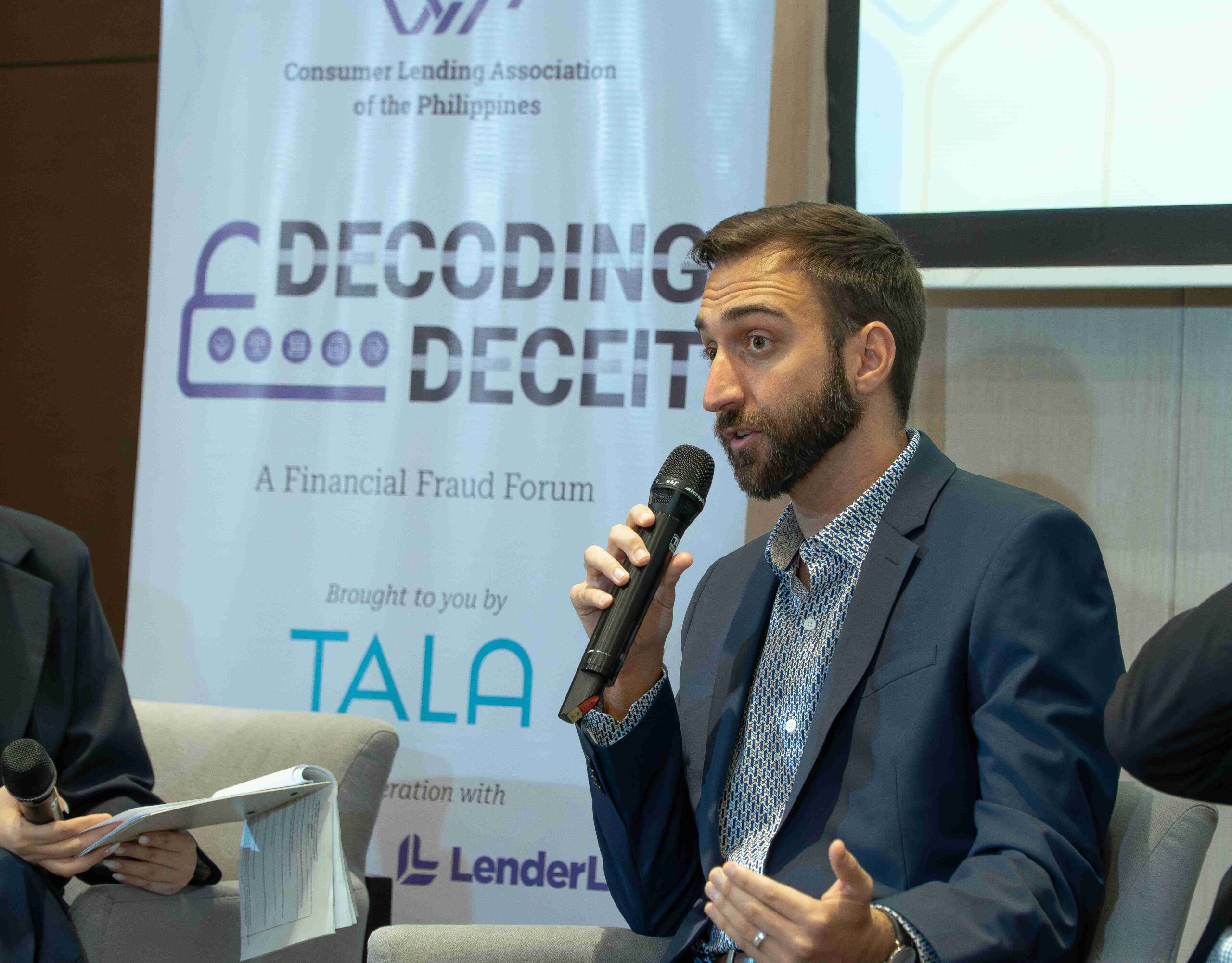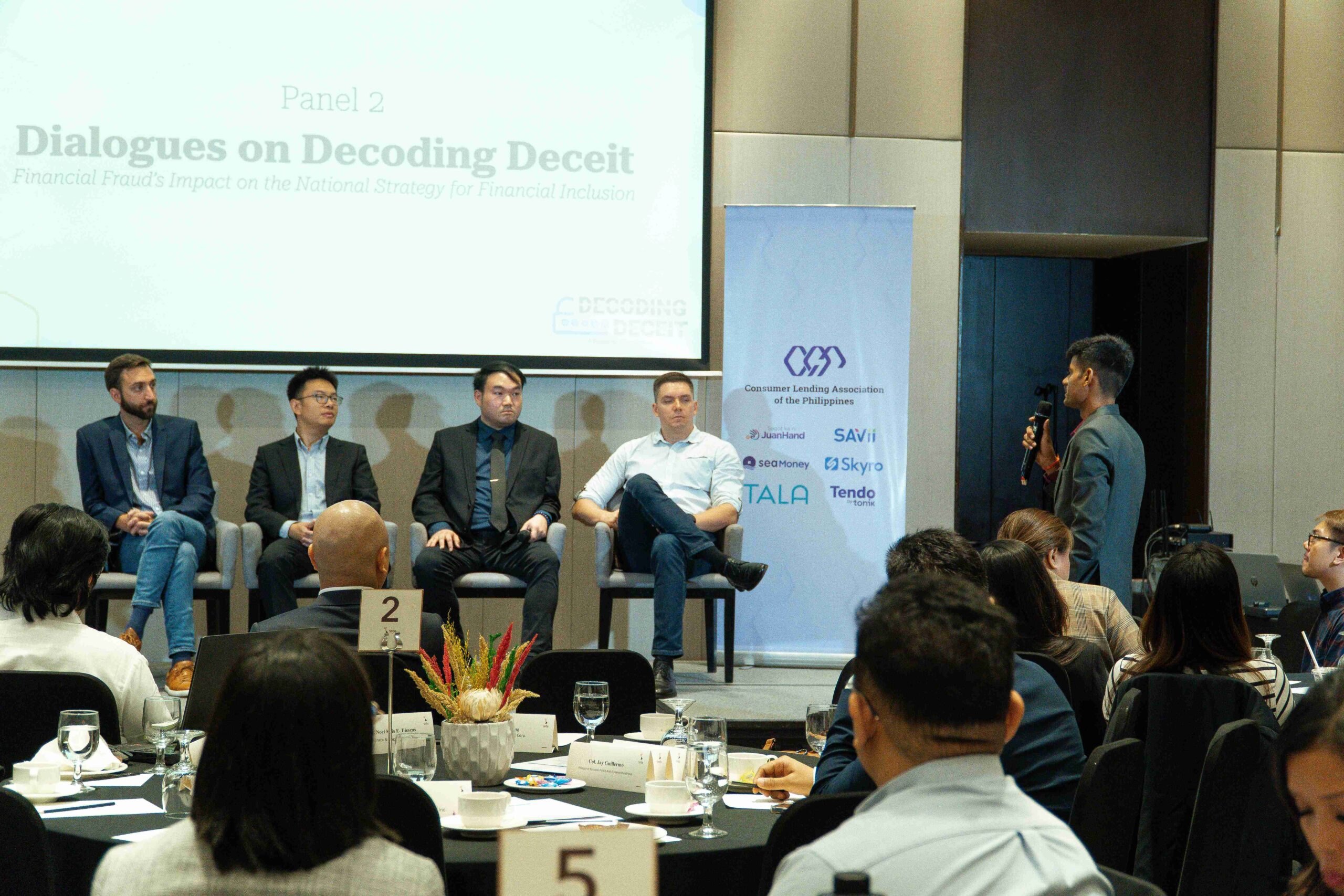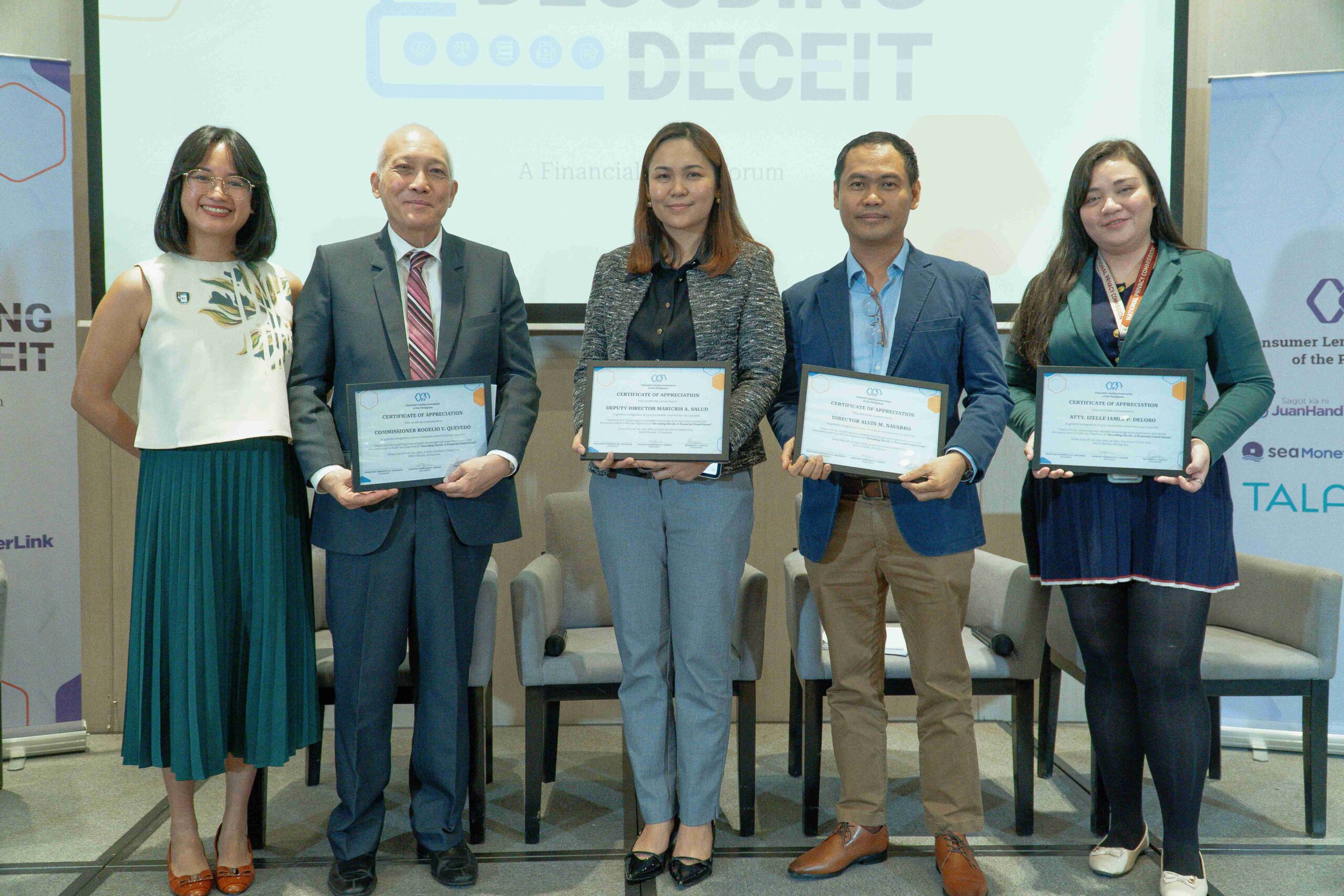What began as simple phishing emails has evolved into a complex network of online schemes that leave many pockets dry. Powered by both cutting-edge AI deepfakes and forged IDs, digital fraud is more challenging to battle against despite financial technology’s undeniable convenience.
According to the Cybercrime Investigation and Coordinating Center, the Philippines has a high rate of digital fraud, accounting for 32% out of 10,000 total cases in 2024. This translates to an average loss of PHP 198 million, triple the complaints from 2023, as more cases of copycat advertisements, impersonations, and investment scams pile up.
Recognizing that the rise in fraud and scams hurts Filipino consumers, Tala Philippines backed increased exchange of industry knowledge at Decoding Deceit: A Financial Fraud Forum. The Consumer Lending Association of the Philippines (CLAP) organized the forum to serve as a platform for both the public and private sectors to share insights from real-world incidents and identify practical measures to protect financing companies, other fintech players, and their customers from rampant financial fraud.
“We should empower agencies with AI tools to keep up with evolving scams. At the same time, we can also partner with telcos and social media platforms to block known scam numbers or accounts,” said Securities and Exchange Commission (SEC) Commissioner Rogelio V. Quevedo during a panel on forging a fraud-free framework together with Bangko Sentral ng Pilipinas (BSP), the National Privacy Commission (NPC), and the Cybercrime Investigation and Coordinating Center (CICC).
Commissioner Quevedo also stressed the critical role of consumers in protecting themselves: “Scammers may reach you, but it’s up to you to verify if the company or name you’re dealing with is legitimate. If it’s not on the SEC Check App, it’s likely fraudulent.”
He assured that the government is staying ahead of fraud: “The government is actively keeping pace with these scammers. When there is money to be earned, the human mind can easily discern, which is why government agencies must remain vigilant.”
Detrimental Impact of Fraud on Financial Inclusion
The National Strategy for Financial Inclusion for 2022-2028 sets primary objectives of promoting inclusive digital finance and enhancing access to risk protection, among others. When asked about major obstacles to achieving these objectives, Pat Yoder, SVP of Credit at Tala, pointed out the surge in “fixers” and the financial fraud they encourage and exacerbate.

“The rising fraud increases default rates while driving up costs, resulting in tighter approval rates, hence hindering financial access,” he explained. “Experiencing the negative effects of fraud, along with the sheer perception of its presence in the industry, often drive first-time users to disengage from formal finance.”
To mitigate financial fraud’s detrimental impact on paving the way for more Filipinos to actively use their financial accounts, a panel of lawyers and law enforcement officers advocated for more consideration and resources to build strong, admissible criminal and civil cases. This often requires coordinated investigative efforts and substantial evidence, procured through cyber warrants, to trace virtual crimes to real perpetrators. They agreed that publicizing credible case victories, despite the high costs and complexities involved, is the most significant deterrent, discouraging would-be fraudsters from capitalizing on the Philippines’ push for digitalization and financial inclusion.

Defense Against Deceit and Tala’s Consumer Protection Campaign
As technical and criminal exploits, such as PhilSys ID forgery by organized syndicates and fake identities, make up a significant portion of digital fraud in the Philippines, critical observations in the forum point at human vulnerability as the weakest link weaponized by scammers.
“Thus, we are championing digital literacy—we believe that Filipinos must understand how to build and use their digital identities responsibly, as they are the key to access financial services and effectively guard against fraud,” said Arianne Ferrer, External Affairs Director of Tala Philippines and President of the CLAP. “As responsible and legitimate lenders, we must teach, train, and improve our digital management skills, together with our customers.”
Aside from its literacy campaigns like TALAkayan with Salve Ibañez, Tala Philippines observes internationally recognized fraud prevention practices and continuously strengthens its fraud management system, such as by utilizing AI/ML to detect anomalous or automated behavior and by reviewing routinely the safeguards around their customers’ personal information. As a result of industry insights gained during the forum, Tala Philippines renews its commitment to pursue fraudsters targeting and harming its customers online. While it initiated some of the first cases under the Anti-Financial Account Scamming Act with the National Bureau of Investigation last year, Tala Philippines expects to pursue more stringent legal action to hold criminals accountable.

About Tala
Tala is a global financial infrastructure company building the world’s most accessible financial services. Their financial services provide customers with flexible, convenient, online credit to help support the unbanked and underserved population. Tala has given more than 40 million loans totaling more than 6 billion USD to more than 11 million people across three continents. Customers have used Tala products to start and expand small businesses, manage day-to-day needs, and pursue their financial goals with confidence. Start your journey into financial freedom: https://tala.ph/borrow/.
For questions about legitimate digital lending platforms, visit gotala.co/help or interact through the official Tala app. Tala is operated by Tala Financing Philippines Inc., a licensed financing company with SEC Registration No. CS201710582 and Certificate of Authority No. 1132, and a registered operator of a payment system, with OPS Registration No. OPSCOR-2023-0010. Always study the terms and conditions and the disclosure statement before proceeding with any loan transaction. Tala is regulated by the Securities and Exchange Commission, with an email address at flcd_queries@sec.gov.ph.






